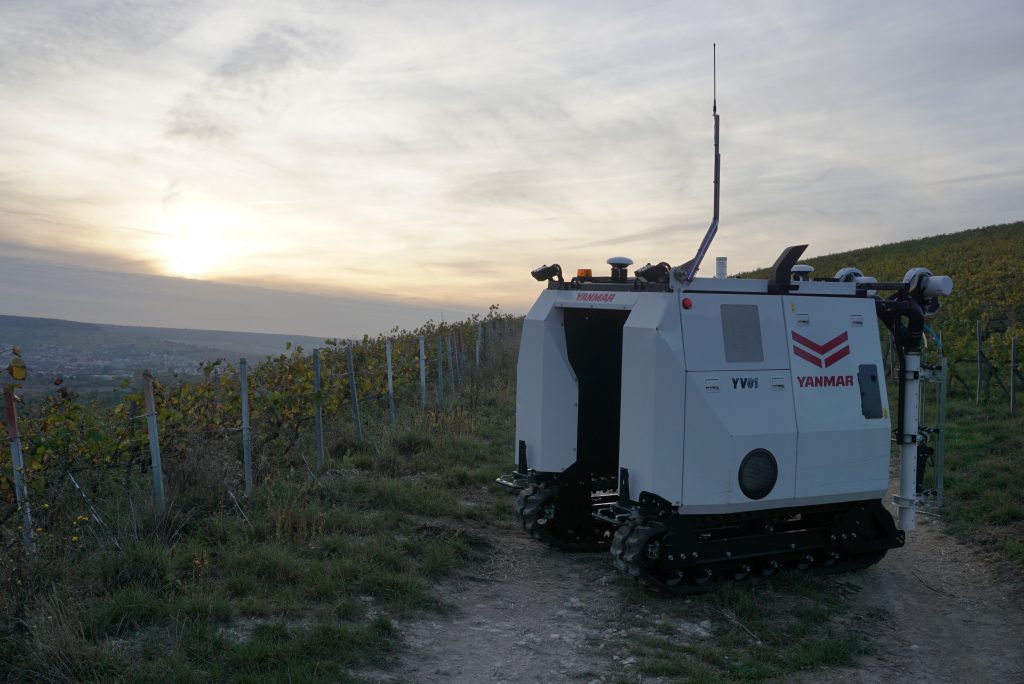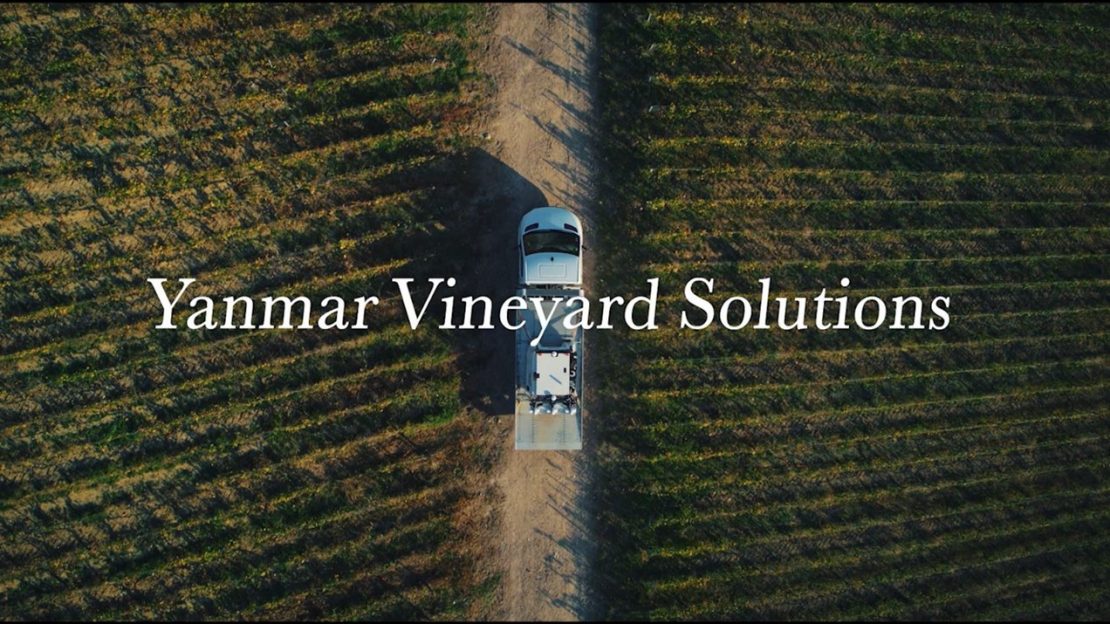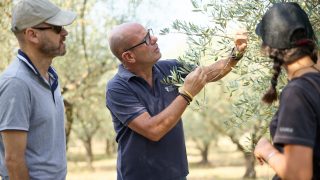Champagne is one of the world’s most famous and revered sparkling wines, but behind the glamour, it takes hard work to make a great bottle – not least in the vineyard. It can be a labour-intensive business tending to the vines and grapes, which usually grow on steep slopes to ensure good drainage and plenty of sunshine.
The cultivation process also requires the regular application of plant protection products to keep the plants healthy. Traditionally, such work was carried out by people walking up and down the hillsides or by utilising small tractors. This can be challenging work, especially in poor weather conditions, and can potentially expose the workforce to these products.
Employee-led initiative
These issues were very much in mind when Yanmar employee Ryosuke Yamazaki combined his passions for wine and technology to come up with the idea for a fully autonomous spraying robot. This would become known as the YV01. His goal was to relieve growers of this type of work, while improving safety, productivity and profitability.
Ryosuke devised his initial premise in 2016 when he was working in Yanmar’s R&D centre. In 2019, he transferred to Yanmar Agri Business, which develops and manufactures agricultural machinery. At that time, the newly formed YV01 team knew little about the wine industry, which is why they completed the bulk of the robot’s development and testing in the Champagne region of France.
This turned out to be a wise move, as Control Systems Engineer Tomohisa Kano explains: “When I took it to France, the environment was completely different from what I had imagined. The fields were steeper, and the paths were in different states, with some having muddy terrain and others covered in stones.”
What they embarked on was truly ambitious – to create an industry first with a completely unmanned robot carrying out vineyard spraying tasks. Through the design and development phase, the team was also able to tap into Yanmar Agribusiness’s experience in building tractors.
Establishing operations
More than 200 field trials were carried out in close cooperation with several premium winemakers, including Moët & Chandon and CIVC, the organisation that manages the production, distribution and promotion of champagne. It is safe to say that some of these organisations were initially sceptical about the technology.
“At first, none of our customers thought it would work, so they were surprised,” says Ryosuke, commenting on how they were won over after seeing the YV01 negotiate the vineyards and carry out its tasks effortlessly.
In 2022, Yanmar established a dedicated company in France called Yanmar Vineyard Solutions SAS to bring the spraying robot to maturity. It is now responsible for selling and servicing the robot solution, which was launched in March 2023.
In what can be viewed as a mark of confidence, Moët & Chandon was the first to buy a YV01. Other winemaking houses have since followed suit, with eight units sold by the end of 2023.
“Although Moët & Chandon bought the machine, it took two or three years to convince them,” adds Ryosuke. “What made me happy was their positive feedback. I feel that we were able to work together to create this robot.”

Delivering multiple benefits
So, what can this innovative new technology bring to these precious vineyards? Firstly, the YV01 enables genuinely unmanned operations. Fully autonomous driving is made possible using the latest GPS technology. The operator simply monitors activities from a remote location. Alternatively, the robot can be guided using remote control systems from a safe location.
It is controlled from an operator’s mobile phone, computer or tablet through proprietary software that is secure and easy to use. Information that can be viewed remotely includes the amount of spraying volume, the robot’s location and duration of operations.
Another key feature is its ability to cope with hillside slopes of up to 45%, well above the Champagne region’s 12% average. Furthermore, it is lightweight and uses crawler tracks to move around, helping growers avoid soil compaction, which is essential for the production of high-quality grapes. The robot has also proved itself to function in all weathers and terrains – from heavy soil to rocky ground.
By introducing the YV01, vineyard owners are reducing the time their workers need to spend in physically challenging environments. In addition, they are no longer exposed to plant protection products.
A sustainable solution
The YV01 also harnesses electrostatic spray technology, which ensures the vines receive the precise amount required. All leaves and branches – both exposed and hidden – are treated efficiently using an atomisation process that optimises the delivery of water and plant protection products.
There is no chance of over spraying, which is good for the environment and helps keep costs down. Moreover, the accuracy of the system helps the vineyard comply with environmental legislation and regulations. The efficient delivery of YV01 also aligns with Yanmar Green Challenge 2050. This articulates the company’s sustainability commitments, which include minimising the impact of its activities on the environment.
With the ability to negotiate narrow passages between rows of vines, the robot sprayer can be put to work in small or large vineyards. It is also light enough to be transported to and from the site in a small truck or trailer. Thanks to its robust, fuel-efficient gas engine, the YV01 can work long hours, and is much quieter than traditional spraying machinery.
So, what is the verdict of those who work so hard in the vineyards? The last word goes to Jessy Didier, one of the first people to use the YV01. “The arrival of the robot has really changed my daily work,” he says. “So yes, I am thankful that I can work more safely these days, since I don’t need to operate directly on hazardous terrain.”
YV01 is just one of a number of robotic solutions from Yanmar that are helping farmers do their work smarter and more efficiently. For example, the company has developed a robot tractor, which obtains local information from satellites to carry out activities like ploughing, autonomously and accurately. Information and communications technology is also harnessed in Yanmar’s rice transplanter to provide straight-line sowing and driverless operations.


























